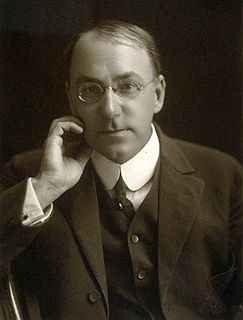A Quote by Markus Zusak
The point is, Ilsa Hermann had decided to make suffering her triumph. When it refused to let go of her, she succumbed to it. She embraced it.
Related Quotes
Raphael lifted a finger, tracing it over her cheekbone. She flinched. Not because he was hurting her. The opposite. The places he touched ... it was as if he had a direct line to the hottest, most feminine part of her. A single stroke and she was embarrassingly damp. But she refused to pull away, refused to give in." (page 33 , Gollancz edition)
My sister is a good story of resiliency. She had a full ride at UC Davis, but she left school to go to the Philippines - and then she decided to go back to school in her 40s, which surprised me. She went to UC Berkeley, and I think she was one of two African Americans in her class at Haas. She's really impressive.
At that moment a very good thing was happening to her. Four good things had happened to her, in fact, since she came to Misselthwaite Manor. She had felt as if she had understood a robin and that he had understood her; she had run in the wind until her blood had grown warm; she had been healthily hungry for the first time in her life; and she had found out what it was to be sorry for someone.
I found her lying on her stomach, her hind legs stretched out straight, and her front feet folded back under her chest. She had laid her head on his grave. I saw the trail where she had dragged herself through the leaves. The way she lay there, I thought she was alive. I called her name. She made no movement. With the last ounce of strength in her body, she had dragged herself to the grave of Old Dan.
In a way, her strangeness, her naiveté, her craving for the other half of her equation was the consequence of an idle imagination. Had she paints, or clay, or knew the discipline of the dance, or strings, had she anything to engage her tremendous curiosity and her gift for metaphor, she might have exchanged the restlessness and preoccupation with whim for an activity that provided her with all she yearned for. And like an artist with no art form, she became dangerous.
Perhaps I will die too, she told herself, and the thought did not seem so terrible to her. If she flung herself from the window, she could put an end to her suffering, and in the years to come the singers would write songs of her grief. Her body would lie on the stones below, broken and innocent, shaming all those who had betrayed her. Sansa went so far as to cross the bedchamber and throw open the shutters ... but then her courage left her, and she ran back to her bed, sobbing.
Propose not to a woman when she hath gotten a new frock, nor when she is puffed up with victories; when she reigneth and rejoiceth in her hour of triumph, come not nigh unto her; but when she be ill or weary, when she is cast down in spirit and needeth a comforter, then be thou ready, and make thy suit.
Her life her life had taken on the shape of a terrible mistake. She hadn't been given the proper tools to make a real life with, she decided, that was it. She'd been given a can of gravy and a hair-brush and told, "There you go." She'd stood there for years, blinking and befuddled, brushing the can with the brush.
In the short summer night she learned so much. She would have thought a woman would have died of shame... She felt, now, she had come to the real bedrock of her nature, and was essentially shameless. She was her sensual self, naked an unashamed. She felt a triumph, almost a vainglory. So! That was how it was! That was life! That was how onself really was! There was nothing left to disguise or be ashamed of. She shared her ultimate nakedness with a man, another being.



































